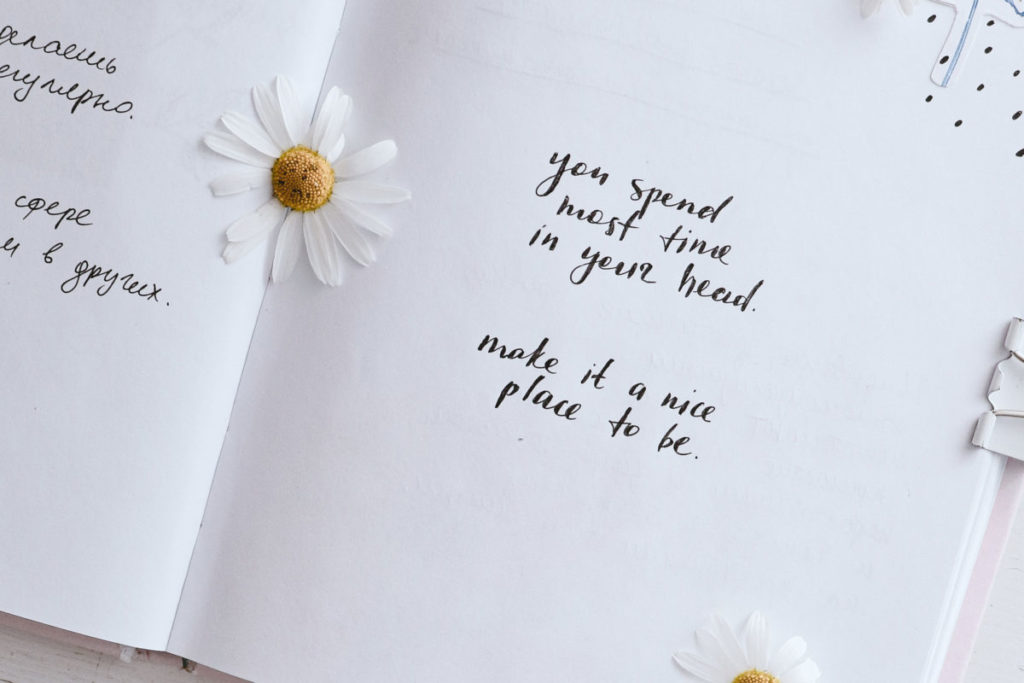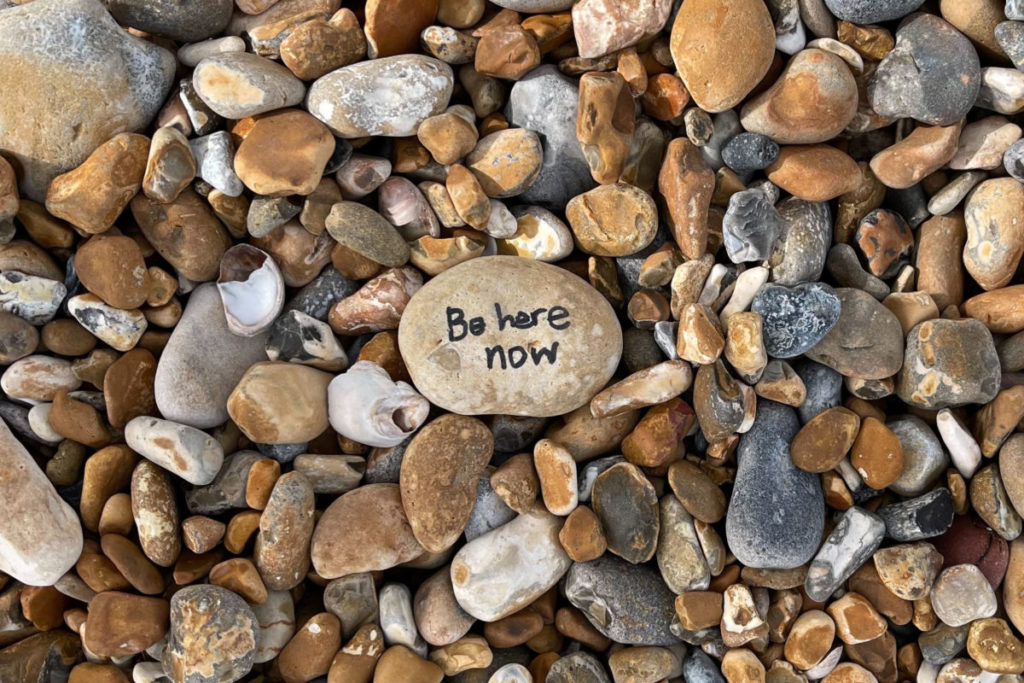Most people feel anxious at some point in their lives. It’s a natural response when we feel under threat, but living with anxiety every day can feel overwhelming and affect our enjoyment of life.
Maybe you avoid things or situations that cause you to feel anxious. You might not be able to stop or control worrying, or you might experience physical symptoms like panic attacks. All of this can make it hard to go about your everyday life.
It’s particularly common to experience anxiety when you’re going through major changes or stressful events, such as moving house, the end of a relationship or the loss of a loved one.
But perhaps you’re not going through any of those things right now. Sometimes it’s a result of past trauma or childhood experiences. It could also be a response to the coronavirus pandemic. Everyone’s experience of anxiety is different.
So it’s not as simple as just removing the cause of the stress. There are lots of factors involved, meaning it’s often difficult to pinpoint an exact reason for anxiety disorders. And it may well be something you have to manage long-term.
Having lived with anxiety for most of my life, I know first-hand how difficult it can be, but I’ve also found some things that help too. Try these ideas to help you find a better balance.
1. Stop and breathe
 When we feel anxious, our bodies can go into ‘fight or flight’ mode. This physiological reaction is triggered by the hormones that prepare our bodies to either stay and deal with a threat or run away to safety. It’s a natural response we’ve had to danger for thousands of years.
When we feel anxious, our bodies can go into ‘fight or flight’ mode. This physiological reaction is triggered by the hormones that prepare our bodies to either stay and deal with a threat or run away to safety. It’s a natural response we’ve had to danger for thousands of years.
Sometimes, fight or flight can occur even when there’s no real threat to us (phobias are a good example). Hormones like adrenaline, noradrenaline and cortisol are released, causing increased heart rate, blood pressure and breathing rate.
The next time you experience this, practise a simple breathing technique. Sit down and get comfy, close your eyes and inhale slowly through your nose. Then follow with a deep breath out through the nose. Continue to breathe deeply and fully, in and out, and think about the present as you breathe.
2. Keep a diary
 Some people find it helpful to make a note of what happens when they feel anxious or have a panic attack. It can help to spot patterns in what triggers these experiences. If you find you wake up in the night with worries, try keeping a notebook and pen beside your bed so you can write down those thoughts. Even just getting them out of your head and on to paper can help.
Some people find it helpful to make a note of what happens when they feel anxious or have a panic attack. It can help to spot patterns in what triggers these experiences. If you find you wake up in the night with worries, try keeping a notebook and pen beside your bed so you can write down those thoughts. Even just getting them out of your head and on to paper can help.
You could also make a note of what is going well. It can be easy to get wrapped up in negative thoughts, but writing down things to be grateful for and reasons to be happy can help keep things in perspective.
3. Focus on the things you can change
 Not the things you can’t. A common challenge for people living with anxiety is worrying about something that’s happened in the past.
Not the things you can’t. A common challenge for people living with anxiety is worrying about something that’s happened in the past.
Maybe you find yourself waking up at night, thinking about something you said to a person 12 years ago that may (or may not) have caused offence. And before you know it, you’ve been awake for hours! It makes me tired just thinking about it.
Life is challenging enough, so be kinder to yourself. You can’t change whatever did (or didn’t) happen 12 years ago. Focus your energies instead on the things you can control in the here and now.
4. Be here now
 Similarly, our anxieties can come from worries about the future – often things that haven’t happened and may never even occur. Even if everything is rosy in your life right now, you might worry about yourself or loved ones becoming sick, you might worry about losing your job, or getting into an accident.
Similarly, our anxieties can come from worries about the future – often things that haven’t happened and may never even occur. Even if everything is rosy in your life right now, you might worry about yourself or loved ones becoming sick, you might worry about losing your job, or getting into an accident.
As much as we’d like to, we can’t always control what happens. One tactic to deal with anxiety is to focus on gratitude instead of fear and live in the moment today.
For instance, instead of worrying about your loved one’s safety, think about how grateful you are for them – enjoy their company and express your appreciation.
Instead of stressing about the traffic, relax and view it as ‘you’ time to sit back and listen to some music. There’s nothing you can do about the situation, but you can control your response to it.
It takes some practice, but it is absolutely possible to switch your thinking and adopt a more positive outlook.
5. Challenge your thinking
 Have you ever received a short email that made you think you’ve made a mistake? Or have you ever worried you’ve upset someone when they don’t text you back? Sometimes when we’re anxious, reality can become distorted.
Have you ever received a short email that made you think you’ve made a mistake? Or have you ever worried you’ve upset someone when they don’t text you back? Sometimes when we’re anxious, reality can become distorted.
Thoughts like this fuel our anxiety. Before your thoughts spiral, ask yourself whether your worry is a fact or an opinion. If it’s an opinion (and it often is), you might be worrying for nothing. You can second guess other people’s thoughts and feelings forever, but it doesn’t do you any good.
6. Eat well
 Your physical and mental health go hand in hand. Eating regularly to maintain stable blood sugar levels can make a big difference to your mood and energy levels.
Your physical and mental health go hand in hand. Eating regularly to maintain stable blood sugar levels can make a big difference to your mood and energy levels.
Eating a balanced diet rich in fruits and vegetables may also help your mood. Try to avoid foods that are high in sugar and highly caffeinated drinks that can result in highs and lows of energy.
7. Make time for exercise
 I know, I know – exercise is heralded as the answer to so many problems. But it’s because it’s true. Physical activity is a powerful stress reducer, so it’s important to factor some exercise into your routine.
I know, I know – exercise is heralded as the answer to so many problems. But it’s because it’s true. Physical activity is a powerful stress reducer, so it’s important to factor some exercise into your routine.
Even if you’re not an avid gym goer or park runner, regular exercise like walking can really help to boost your mood – especially if you make the time to get outside in the fresh air. It’s a good opportunity to clear your mind and unwind from the stresses of the day, too.
8. Try alternative therapies
 Many people find that alternative therapies can help them to keep their symptoms of anxiety in check. Anxiety is something that people tend to live with throughout their lives, so regular interventions can help to manage the symptoms.
Many people find that alternative therapies can help them to keep their symptoms of anxiety in check. Anxiety is something that people tend to live with throughout their lives, so regular interventions can help to manage the symptoms.
There are lots of things you can try – such as massage, aromatherapy, meditation, yoga or hypnotherapy. Some of these methods can also help you to get a better night’s sleep – and who wouldn’t want that.
9. Reach out when you need to
 Sometimes asking for help can feel like the hardest thing to do. But as much as we might try to manage alone, speaking to someone about how you feel can have the biggest impact. Reach out to trusted friends or family for a chat. Often they are the best people to help you keep things in perspective.
Sometimes asking for help can feel like the hardest thing to do. But as much as we might try to manage alone, speaking to someone about how you feel can have the biggest impact. Reach out to trusted friends or family for a chat. Often they are the best people to help you keep things in perspective.
If you need support
Remember everyone is different. What works for one person mightn’t work for another. Try different strategies and see what helps you.
If you are struggling, speak to your GP for advice. They can refer you to specialist mental health services and prescribe medication if appropriate.
You can also self-refer to organisations within our region. Check out Impact on Teesside for help and support. Mind also has lots of useful information and advice for living with anxiety.
Students can access support and resources through Student Space, including a free text, email, webchat and telephone service.
And if you’re a student at Teesside University, get in touch with the Student Life team to speak to someone and make an appointment. You can also get confidential support 24/7 through the Student Assistance Programme.


